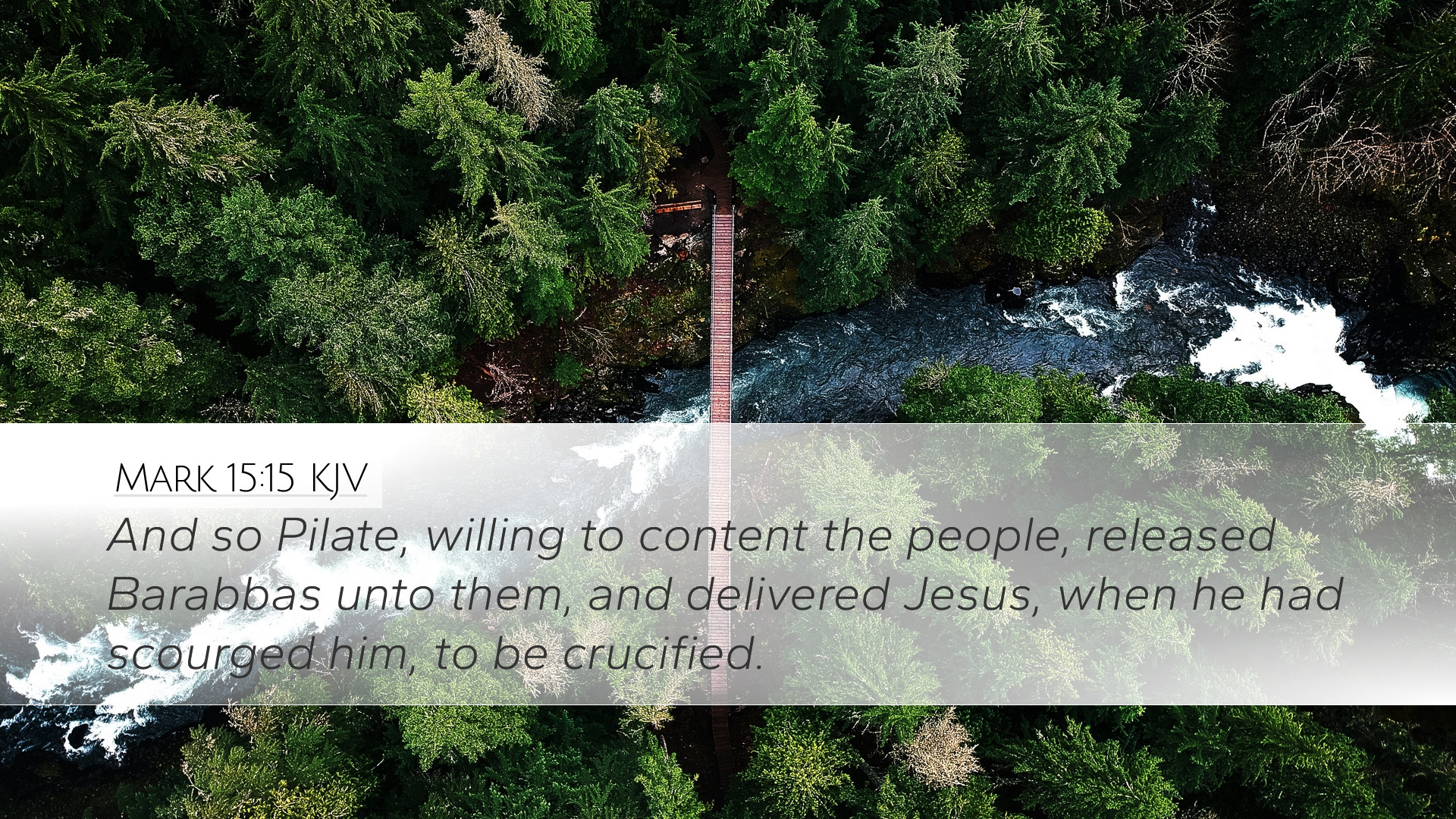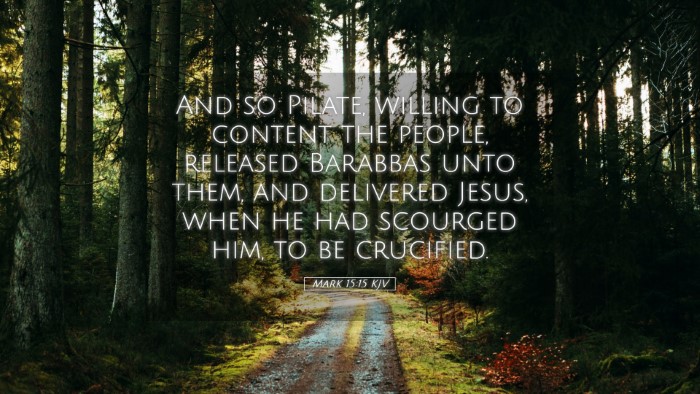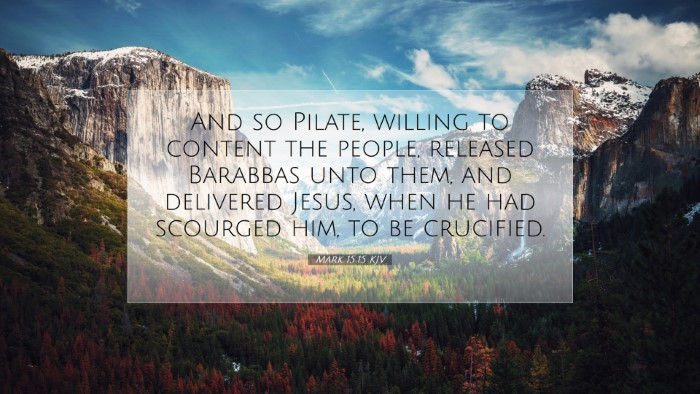Commentary on Mark 15:15
Verse: "So Pilate, willing to content the people, released Barabbas unto them, and delivered Jesus, when he had scourged him, to be crucified." (Mark 15:15)
Introduction
This verse captures a moment of profound political and spiritual significance in the trial of Jesus Christ. Mark's account, while concise, reflects a complex interplay between Roman law, Jewish expectation, and divine prophecy. A closer examination through the lenses of historical context, theological implications, and moral lessons from respected public domain commentaries offers valuable insights for pastors, students, theologians, and Bible scholars alike.
Contextual Analysis
Mark 15:15 occurs at a critical juncture in the Passion narrative. Jesus stands accused before Pontius Pilate—Roman governor of Judea. Pilate's decision-making is influenced by public opinion and the desire to maintain order among the Jewish people. This highlights the tension between political expediency and moral integrity.
Political Dynamics
Matthew Henry comments on the political motivations of Pilate, stating, "Pilate was willing to please the people rather than uphold justice." The governor’s act of releasing Barabbas instead of Jesus speaks to the compromise of leadership under societal pressure.
Albert Barnes notes that this decision represents not only a decision to spare a known criminal, Barabbas, but also a stark rejection of innocence—Jesus. This moment illustrates the tragic reality of mob mentality where the outcry of the crowd can overshadow truth and righteousness.
Theological Insights
The choice presented to the crowd aligns with the biblical themes of substitution and sacrifice. Adam Clarke highlights this as a foreshadowing of Christ as the ultimate sacrificial Lamb. Barabbas, whose name means "son of the father," represents humanity's sinful nature, traded for the truly innocent Son of God.
Divine Sovereignty
Despite the apparent chaos, the event fulfills Old Testament prophecies concerning the Messiah's suffering and death. This culminates in God’s sovereign plan for redemption. Matthew Henry asserts that “the actions that seem to be human designs turn out to be divine ordinations.” Pilate's willingness to scourge Jesus and deliver Him to crucifixion reflects a misguided attempt to pacify the crowd, yet this act ultimately serves the divine purpose of atonement.
Moral and Ethical Reflections
This narrative invites reflection on the ethics of leadership and the responsibility of the church today. Leaders must navigate complex social dynamics, as Pilate did, where the pressure to conform can lead to moral compromise. Barnes points out that while maintaining peace is essential, it should never eclipse one’s duty to uphold justice and truth.
Application to Modern Believers
Pastors and theologians can draw parallels between Pilate’s plight and contemporary issues faced by the Church, such as societal pressures that challenge moral convictions. Believers are called to be both witnesses to truth and agents of justice, modeling Christ's example, even in the face of opposition.
Conclusion
Mark 15:15 serves as a poignant reminder of the complexities involved in human decisions juxtaposed against divine sovereignty. It beckons us to reflect on the core tenets of our faith—the gravity of sin, the necessity of sacrifice, and the call to stand firm in truth despite societal pressures. As we engage with scripture, may we glean wisdom from this commentary, encouraging us to uphold righteousness in our personal and communal lives.


